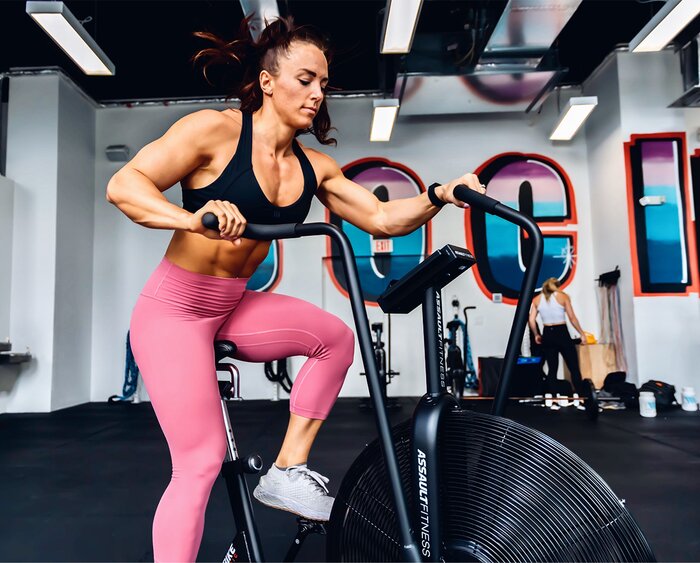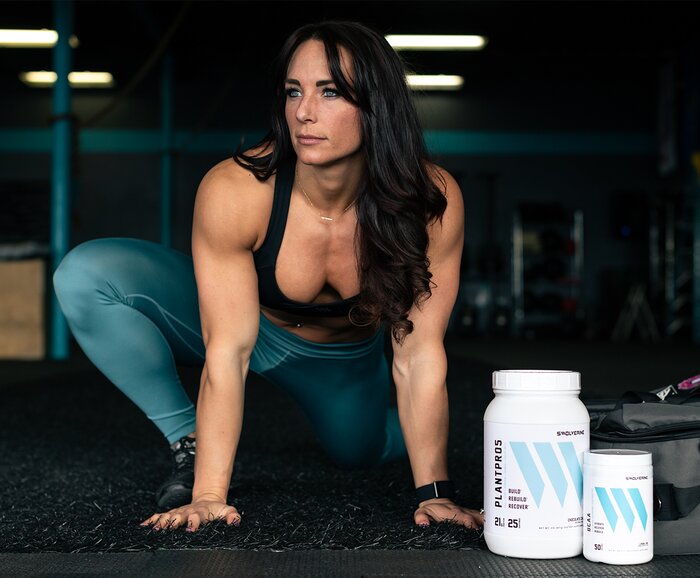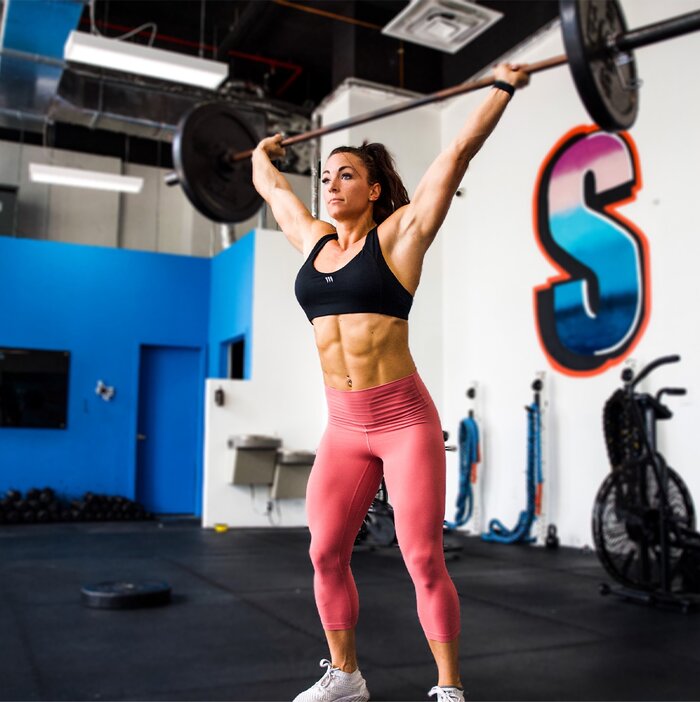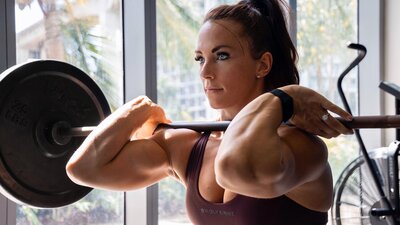Anybody can do CrossFit, but only the truly exceptional make it to the annual CrossFit Games. And make no mistake: Lauren Sheehan (nee Suever) is exceptional.
This Swolverine-sponsored athlete is a trauma nurse, a nationally-ranked Olympic weightlifter, a coach, and the owner of her own CrossFit box. What this basically means is Sheehan is busy from sunup 'til dusk, yet she somehow still managed to train and qualify for this year's CrossFit Games.
We caught up with Sheehan a week before the start of the Games, as she was finishing up a grueling 9,000-meter rowing workout, to ask her about her training, her recovery, and what it's like to finally be competing in the 2021 CrossFit Games.
BBCOM: The CrossFit Games are less than a week away. What do the next few days look like in terms of preparation?
Lauren Sheehan: The way we're trained, our coach just destroys us every single day. I mean, it's awful. But the intention is to get to where we go to competition and it just feels like a normal day of training, if not actually easier. When we compete, it doesn't feel bad volume-wise compared to what we're used to. We're overtraining so that when we show up, we're prepared.

This week, it's starting to taper down. My conditioning is where it is at this point. For any athlete so close to the Games, you've put in the work and there's not really much room to improve your fitness. If you're not there now, then you're not going to be.
It sounds like you've got the physical side covered. How do you prepare your mind to take on something as big as your first Games?
As an athlete, you know what you're usually capable of, because you've basically been collecting data every time you train. You say to yourself, "I'm capable of performing this, for this amount of time, at this speed, and I can handle this many reps."
When you see some of the tougher workouts, you go back to that data you've collected and know that you're capable of this and this, but in your head there's no way you could do that. Then you end up doing it and now you've got new data to go off of.
If you are annihilating yourself in every training session, have you developed any special recovery techniques?
For me, it's sleep. Sleep is huge. I feel like I require more than others. My teammates can get by on seven or eight hours, for me it's like 10-12. Sleep is huge for anybody, no matter if you're an athlete or not. I put sleep over everything.
Next comes nutrition and supplementation. When you're at that higher elite level, I feel like the competitive edge is the stuff outside of the gym. Sleep, nutrition, supplementation—it's trying to find that extra inch because everybody's putting in the same work at the gym.

What are your staple supplements for this prep?
I feel like whey protein is huge for anybody for recovery. I tell people whey is the number one thing that anybody should take if they're physically active. Then there's beta-alanine and creatine. The beta-alanine just gives me a little extra boost when I go to train. I feel like my capacity is so much better and the time to exhaustion is increased.
I also take multivitamins, vitamin B12, and stuff to help combat inflammation, like fish oil and turmeric. Inflammation is huge, so I try to cut it down because obviously doing what we do, you build up a lot of inflammation in your muscles and everything.
You're a trauma nurse. Does having a background in health change the way you approach training and supplementation?
I feel like it means I stress the importance of all the little details. By no means am I a doctor, nor do I know every single thing there is to know about the body. But having that background, I feel like I'm able to apply my knowledge better to things inside of the gym, whether it be performance or recovery.
Even just things like training injuries. Knowing how the body works, I'm able to know that I might have tweaked this area, which is connected to this muscle, and so on. I don't want to say it gives me an edge on anybody else, because there are a lot of healthcare professionals in CrossFit, but I feel like it definitely helps.

You've also competed in Olympic weightlifting. How do the two sports compare?
I was pretty competitive in weightlifting. In 2019, I was still doing a lot of both. I'd do a big CrossFit competition, then, like, the next week, I'd have weightlifting nationals, and right after that, another big CrossFit event. Obviously, there's a lot of Olympic weightlifting involved in CrossFit, so it's definitely possible to be competitive in both. I'd said they go hand in hand.
The thing I like about CrossFit is it's constantly challenging. In weightlifting, say that this girl is in my weight class and she can lift this much, and I can lift this much, as long as nobody screws up, we kind of know who's gonna win. With CrossFit, because it's so varied, you can have a terrible day one day and come back and win the next.
In addition to working as a nurse, you also own your own CrossFit gym. What do you tell people who've never tried CrossFit?
I just tell people CrossFit is what you make it. For the competitive athlete, it can be a lifelong sport, or it can just be a way to lose 50 pounds and be more functional in your daily life.
That's what I love about CrossFit. Every single person who's involved is completely supportive whether you want to be an athlete or you're just here to get rid of your stress from the day. CrossFit might not be for everybody, but it's for anybody.
*These statements have not been evaluated by the Food and Drug Administration. This product is not intended to diagnose, treat, cure, or prevent any disease.

.png)
